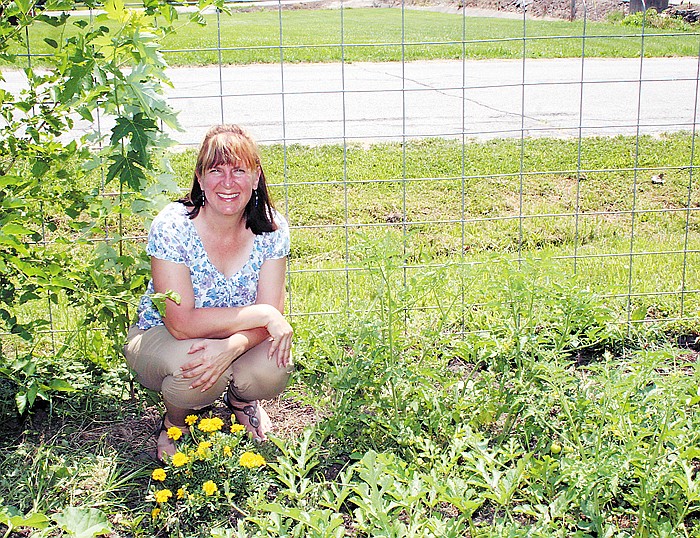For Karen Korenberg, gardening isn't just about growing her own fruits, herbs and vegetables, it's also a peaceful retreat in her very own backyard.
"I spend a lot of time in my garden praying," Korenberg said. "It's my escape. It's an opportunity to marvel at God's creations. It's amazing how these tiny seeds sprouted into things like tomatoes, watermelons and cantaloupes that look nothing like the seeds they started out as."
Korenberg, 45, credits her parents for passing the gardening bug onto her.
"My parents met in 4-H in Iowa, so we always had a garden growing up. So I learned some about it during my childhood years. Since then, I've just read and educated myself. I started out growing herbs. They are very forgiving and easy to take care of. They're weeds. I grew them for 10 years or so before I started a vegetable garden, which I've done for five years now."
Today Korenberg's garden produces zucchini, tomatoes, watermelon, cantaloupe, sweet potatotes, green peppers, carrots, basil, oregano and even catnip.
"I had a problem with possums in my garden, so I planted catnip to attract cats, because the smell of cats keeps pests away. The catnip is related to mint and it makes cats mellow. I used to think my cat was coming out in the garden to be with me, but I think it's because of the catnip. I had a problem with slugs at one point, but I didn't want salt, which kills them, in my garden. Then I read slugs love beer. So I put beer in custard cups in the garden, and the slugs drink the beer then fall in the cup and drown."
What a way to go though!
Recently, Korenberg has taken her gardening to another level. "I'm trying to go organic, so I'm constantly pulling weeds. For me, organic means not using any pesticides or herbicides in the garden. To have a truly organic garden, you have to have the land clear of pesticides and herbicides for like five years. It's more work for sure. If you have fertile soil, weeds will grow like crazy."
Korenberg attributes her good soil to composting.
Compost is organic matter (green food waste, leaves, etc.) that has been decomposed and recycled as fertilizer and as a soil conditioner. It is rich in nutrients.
"I compost by taking any kitchen trash that has no meat or dairy, such as egg shells, coffee grounds, potato peels and watermelon rinds, and I let it all build up in a cage I have in the backyard. I turn it once a month and I get really rich soil from it. I add grass and leaves to it, which helps the breaking down process. Grass actually makes it hot. In the wintertime, sometimes you can see compost piles steaming."
To keep pests out of the compost, Korenberg added her dog's winter coat as it shed.
"This year I didn't buy any soil, I used all compost," she said.
Korenberg said she spends an average of 30 minutes in her garden each week day, and 1 1/2 hours daily during the weekend.
"If you count the time I spend working in the garden, it's not really a money saver, but to be able to grow the best stuff, the quality of the food is just phenomenal. I don't buy tomatoes from July through November. I take watermelon to snack-day events at work. I'm going to be able to make salsa in a couple of days."
When asked if she has any advice for new gardeners, Korenberg said, "Start with something easy that you like. That's why I started with herbs. They're easy. I really like having fresh basil and oregano."
Korenberg lives in California with her daughter Leah, 17, who will be a senior in the fall at California High School.

